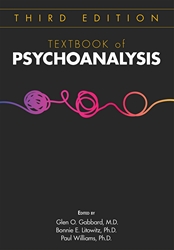Learning Solution-Focused Therapy
An Illustrated Guide
View Pricing
Description
Learning Solution-Focused Therapy: An Illustrated Guide bridges the gap between the traditional medical model of problem-focused assessment and treatment and the newer, increasingly popular strength-based treatment approach. The author's objective is to provide another therapeutic dimension, thus enhancing problem-focused treatment and supporting competency in this strength-based modality. Psychiatrists, pediatricians, family practitioners, nurses, and other mental health providers will appreciate the how-to focus of the text, its compelling, case-based approach to learning, and its informal, conversational writing style.
The book's structure and features are designed to facilitate learning:
- The book begins with an overview of the core tenets of solution-focused therapy, starting with solution-focused case review and examining both solution-focused core assumptions and core questions. This helps the reader understand the foundation of this modality and put it into context.
- A primary objective is building the skills necessary to effective solution-based therapy, and the book includes instruction on conducting a solution-focused interview, establishing a framework of strengths and resources, developing a yes-set, negotiating goals, amplifying ambivalence, and dealing with crisis.
- Solution-focused techniques are integrated within supervision and consultation, an approach that clinicians who work with students and residents, and supervisors who work within agencies will find immensely useful.
- Solution-focused psychopharmacotherapy and addiction therapy merit complete chapters, providing information that clinicians will find invaluable when applying solution-focused techniques in these situations.
- The case illustrations vividly render the dialogue of patient and therapist, and are accompanied by detailed explanations and commentary in italics to help the reader learn how to practice this model of treatment.
- Companion videos (available online) present commonly used techniques that illustrate key features of solution-focused therapy in a compelling and enlightening way.
Learning Solution-Focused Therapy: An Illustrated Guide provides learning exercises and case illustrations that will help the reader implement practical strategies immediately with patients, students, supervisees and trainees. Practical, engaging, and evidence-based, this book will enhance the clinician's ability to connect with and help the patient in a positive way.
Contents
- About the Author
- Preface
- Acknowledgments
- Video Guide
- Chapter 1. Introduction to Solution-Focused Therapy
- Chapter 2. Beginning With Strengths and Resources
- Chapter 3. The Yes-Set
- Chapter 4. Language Skills in Solution-Focused Therapy
- Chapter 5. Scaling Questions and the Miracle Question
- Chapter 6. Solution-Focused Goal Negotiation
- Chapter 7. Other Useful Solution-Focused Questions
- Chapter 8. Solution-Focused Assessment
- Chapter 9. Solution-Focused Psychopharmacotherapy
- Chapter 10. Solution-Focused Therapy With Addiction
- Chapter 11. Solution-Focused Supervision
- Chapter 12. Solution-Focused Consultation
- Chapter 13. Conclusion
- Appendix: Rating Scales
- Mood Assessment
- Child Attention Profile
About the Authors
Anne Bodmer Lutz, B.S.N., M.D., is the Director of Training for the Institute for Solution Focused Therapy. She is a board certified adult and child and adolescent psychiatrist, an assistant professor in psychiatry at the University of Massachusetts in Worcester MA, and was a nurse prior to becoming a physician. Anne worked for many years as a consulting psychiatrist for a residential treatment center with adolescents coping with substance use disorders and co-occurring disorders and in community mental health agencies integrating solution-focused approaches within these treatment setting. She provides direct clinical supervision, teaching and training to psychiatric residents, workshops for community based treatment organizations, agency based trainings and coaching in Solution-Focused Therapy. She received a Massachusetts Course of Distinction award in 2016 for online and blended learning course entitled Solution-Focused Fundamentals and Practice Certificate Course recognizing faculty whose course designs best exemplifies online education's potential to enhance teaching and learning. Anne currently has a private practice in West Boylston Massachusetts where she integrates solution-focused practices in her treatment of children and families.
Related Products
Carousel Control - items will scroll by tabbing through them, otherwise arrows can be used to scroll one item at a time








